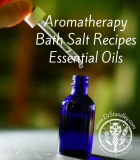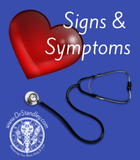Without Vitamin A it is impossible for the body to use proteins? Do you know what this means? It means forget about utilizing protein unless you have Vitamina A. This vitamin is an antioxidant as well as a fat-soluble nutrient. So, it can be dissolved in fat. When we eat food that contains beta-carotene, it is then converted to Vitamin A in the liver. If you aren't that crazy about foods that contain Vitamin A, you might want to take a high-quality multivitamin which should provide vitamin A (fat soluble) in the form of retinyl palmitate; and mixed carotenoids (water soluble). These are the building blocks your body uses to make vitamin A. You might see carotenoids appearing on labels as alpha- and gamma-carotene, beta-carotene, cryptoxanthin, lutein, lycopene, and zeaxanthin. (Who made up these names?) Though overdosing on Vitamin A is unlikely, the skin could quite possibly turn a slight yellow-orange with a hefty intake.
Helps support bone formation and cell membranes. It's important to support the eyes, hair, skin (such as acne) and teeth. In other words, Vitamin A stimulates growth and vitality. It helps form the color purple which is essential for night vision. It's great for immune system functions - like fighting infection, colds, flu and bacteria. It also helps maintain the healthy function of the reproductive organs and liver function. When there is tissue damage inside or outside the body, a broken bone or damaged skin - it's Vitamin A to the rescue. It speeds up healing time in many illnesses. Vitamin A is an antioxidant, therefore, it helps the body combat environmental pollutants.
Antibiotics, cholesterol-lowering drugs, and some laxatives can interfere with the absorption of Vitamin A. Those individuals who are pregnant or have liver disease MUST consult with their physician. Children MUST be directed by their physician. Hypothyroid individuals and diabetics should avoid beta-carotene because they cannot convert it to Vitamin A.
POTENTIAL INTERACTION: None if taken as recommended.
Alfalfa sprouts, apricots, asparagus, avocado, banana, bee pollen, beets, broccoli, cabbage, cantaloupe, carrots, cayenne pepper, celery, cherries, dandelion greens, fish liver oils, garlic, kale, kelp, leaf lettuce, liver, melon, mustard, papaya, parsley, peaches, peas, persimmon, pineapple, prunes, pumpkin, spinach, spirulina, sweet potatoes, yellow fruits and squash, tomato, yellow or green vegetables, sprouted wheat, turnip greens, whole wheat, wheatgrass, and watercress.
Always check with your physician first before taking any supplements.


































